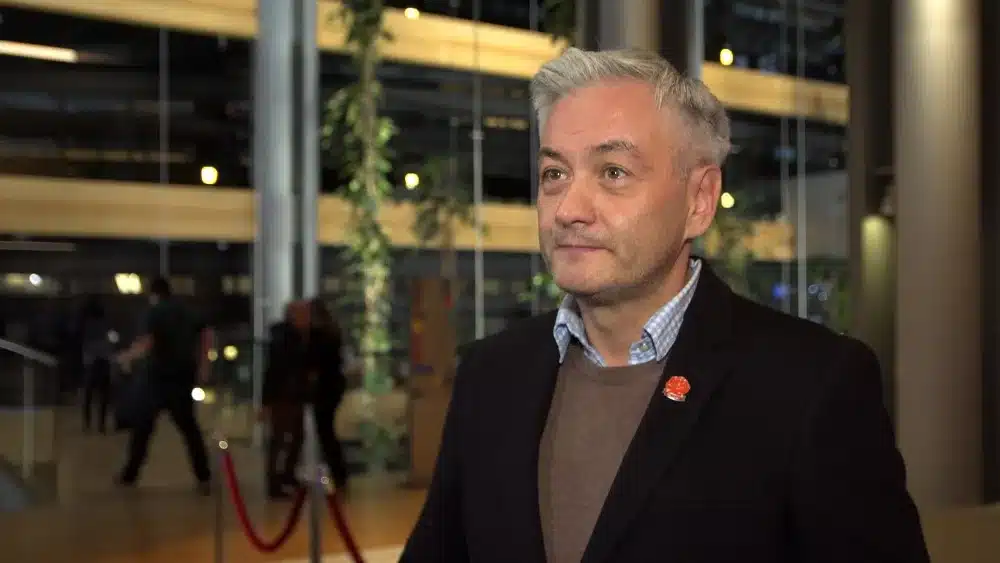Both the United States and the European Union would like to see a ceasefire or preferably a peace agreement in the Middle East, but there seems to be no prospect of such an occurrence. Ever since the Hamas attack on Israel in October 2023, ongoing armed attacks have been conducted throughout the region, causing the death of many, including civilians, on both sides. Polish Members of the European Parliament of different political inclinations say that the European Union needs to continue to exert pressure on both sides to slowly extinguish the conflict, but their ability to do so is limited.
“The escalation of the conflict in the Middle East is a global threat, not only for Europe, but for the whole world,” emphasizes Robert Biedron, Member of the European Parliament, representative of New Left. “The Middle East, due to its oil deposits and other fossil fuels, is a strategic region, and whatever happens there has always affected not only the economic situation but also global security issues. Therefore, Europe must respond to whatever happens in the Middle East, which is very dangerous not only for us.”
A new phase of warfare in the decadal Middle East conflict began on October 7, 2023, when Hamas attacked Israel, launching several thousand rockets, mainly at cities and settlements in southern Israel. According to Israeli military data, more than 1,200 people were killed, 251 hostages were taken, almost 100 of whom are still being held in the Gaza Strip.
“Iran-Israel tensions and the fighting between Israel and Hamas are serious for the whole world. Some believe it’s a proxy war stirred up by the Russians and others who want to break American primacy,” says Tobiasz Bocheński, Member of the European Parliament from Law and Justice, talking to the Newseria Biznes news agency. “Besides geopolitics, we should also focus on the human dimension, on everything that happened this year, both in terms of civilian casualties in Israel and those suffered by Palestinians.”
The attack took the Israeli authorities by surprise, which retaliated, and since then, both sides (Hamas has the backing of Iran and Lebanese Hezbollah) have been conducting retaliatory actions. Almost a year after the first attack, Iran fired around 200 ballistic missiles towards Israel, among other things, in response to the death of the Hamas leader, the head of Hezbollah, and an Iranian general. The world is waiting for Tel Aviv’s next move. The question is not so much whether Israel will attack, but what target it will choose and when the attack will take place.
For over a week after the Iranian attack, Israel, despite threats, refrained from retaliatory actions. On October 9, US President Joe Biden spoke to them, trying to mitigate the scale and power of their response. However, experts believe retaliation is inevitable. They fear an attack on Iranian nuclear facilities, although this is considered unlikely, and oil installations may be a more realistic target. The European Union also wants to mediate, but it faces a challenging task.
“In our foreign policy, we still have no rule related to abandoning unanimity, we don’t have a joint foreign policy, we of course have a high representative who conducts a very active policy on issues related to the Middle East, but current regulations don’t allow the European Union to lead a coordinated policy with all 27 EU countries, which in my opinion makes on-the-spot responses difficult,” Robert Biedron notes.
He also emphasizes that the social democratic faction in the European Parliament believes that the conflict in the Middle East must be resolved diplomatically by adopting a two-state solution, i.e., Israel and Palestine. This must be negotiated peacefully but requires strong pressure from Europe and the United States on Israel, as the current Israeli Prime Minister, Benjamin Netanyahu, faces serious criminal charges that could end in a criminal trial, complicating the peace process in the Middle East.
Both MEPs also agree on the role of Europe in providing humanitarian aid to civilians on both sides of the conflict.
“The European Union should not value anyone’s life, but look at who needs support. And if we talk about support in terms of food aid, medical and the like, people should not be divided as some sides of the conflict would want, and in my opinion should maintain help,” says Tobiasz Bocheński.
